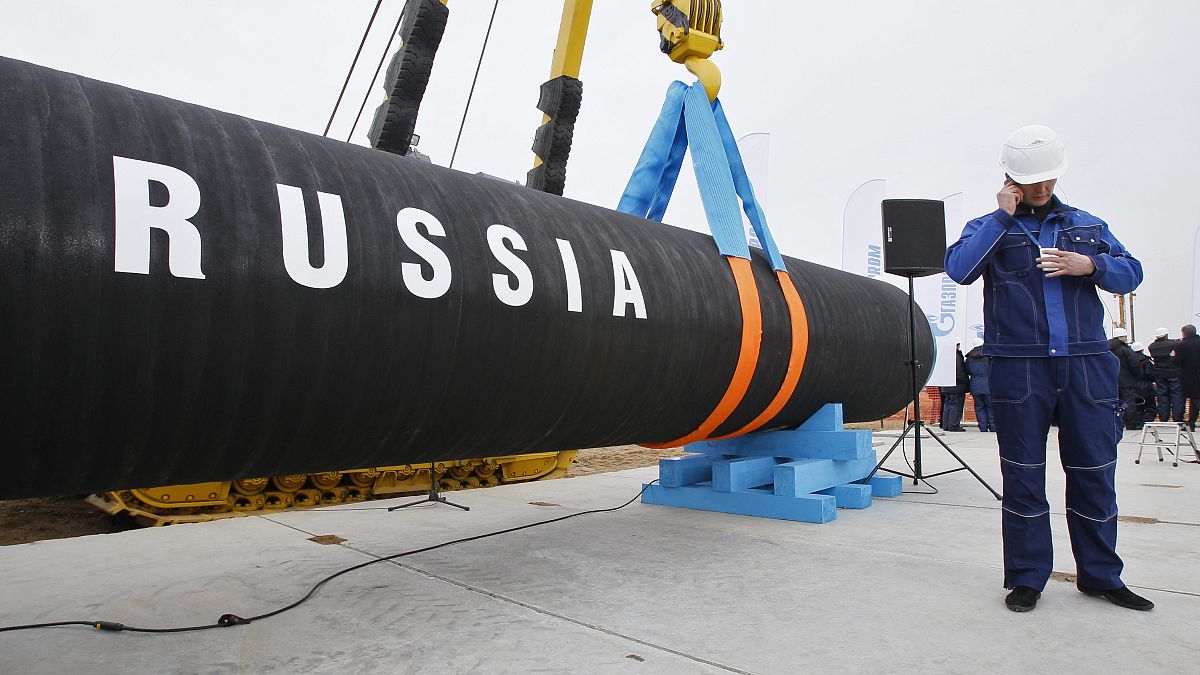Russia’s oldest gas export route to Europe – a pipeline dating back to Soviet days – was set to shut at the end of 2024, as a five-year transit deal between Russia and Ukraine expires
read more
The logo of Gazprom company is seen on the facade of a business centre in Saint Petersburg, Russia on March 31, 2022. Reuters File
Russian gas supplies to Europe via Ukraine are set to cease on New Year’s Day, marking the end of Moscow’s long-standing dominance in the European gas market.
The oldest gas export route from Russia to Europe, a pipeline originating from Soviet times, was expected to close at the end of 2024 as a five-year transit agreement between Russia and Ukraine expires.
According to Reuters, data from Ukraine’s gas transit operator revealed on Tuesday that Russia had not requested any gas flows for January 1.
Following the outbreak of the war in Ukraine in February 2022, the European Union significantly reduced its reliance on Russian gas by seeking alternative sources.
Countries still purchasing Russian gas, such as Slovakia and Austria, have arranged for substitute supplies, and analysts predict minimal market disruption from the halt, reported Reuters.
On Tuesday, European benchmark gas prices closed at 48.50 euros per megawatt hour, showing only a slight increase from earlier trading.
However, the cessation of gas flows carries significant geopolitical implications.
Since the invasion of Ukraine, Moscow has lost its dominant share of gas supplies to EU countries to competitors like the United States, Qatar, and Norway, prompting the EU to further reduce its dependency on Russian gas.
Once the world’s largest gas exporter, state-controlled Gazprom reported a $7 billion loss in 2023, marking its first annual loss since 1999.
For Europe, the absence of affordable Russian gas has contributed to a significant economic slowdown, rising inflation, and an exacerbation of the cost-of-living crisis.
Although Europe has swiftly sought alternative energy sources, the loss of Russian gas raises long-term concerns about its diminishing global competitiveness, particularly regarding Germany’s industrial future.
Impact of Ukraine war
Russia and the Soviet Union spent half a century building up a major share of the European gas market, which at its peak stood at around 35%, b

